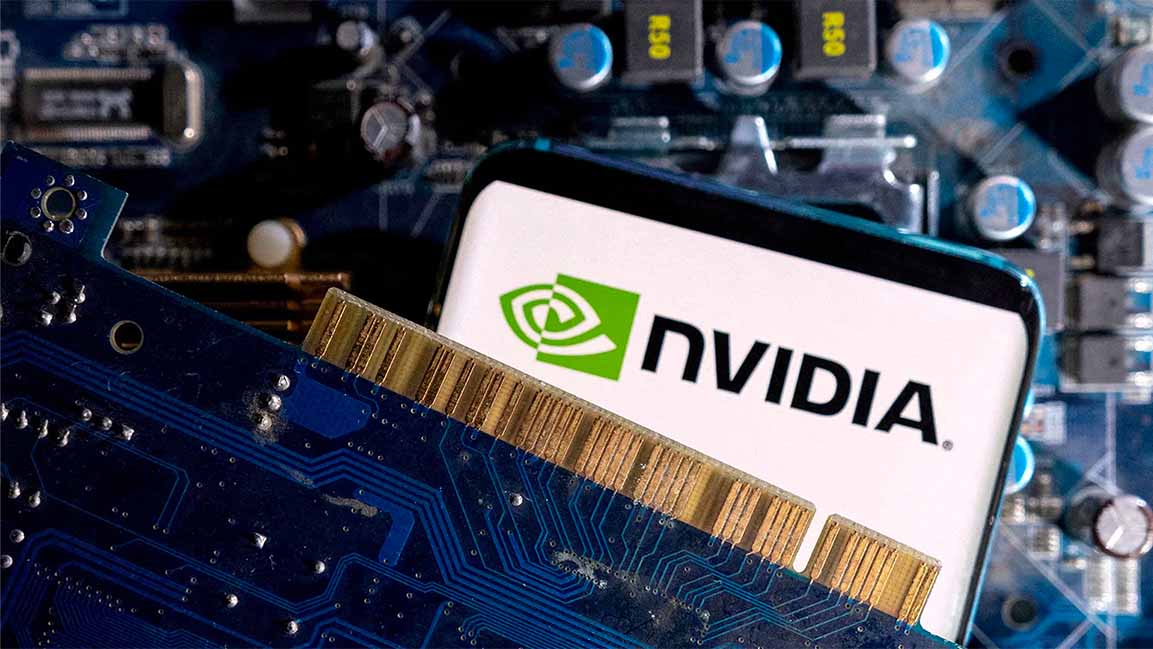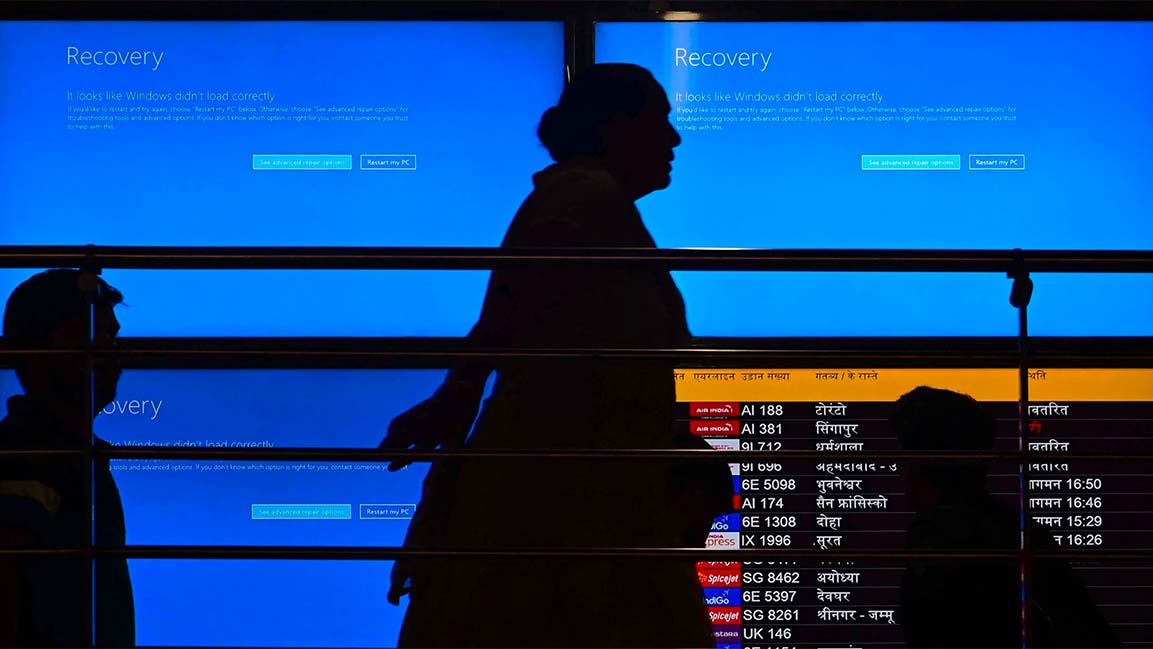- | 9:00 am
Emerging tech is changing the face of innovation in the Middle East
The real hero is technology, that is driving a substantial shift in the region

Emerging technology has always promised to transform lives, but it is also challenging the status quo, accelerating change, and democratizing access to innovation.
Emerging technologies in the Middle East are booming, but they are not just about artificial intelligence, machine learning, or blockchain. The region is striving to become the leader in the technological revolution.
For Abdallah Abu Sheikh, Founder of Astra Tech and CEO of Botim, emerging technologies and innovation fuel each other’s growth, leading to a significant shift in the landscape overall.
“This transformation is multi-faceted and deeply impactful. Most importantly, emerging technologies serve as catalysts for collaboration between various stakeholders, including the public and private sectors. This collaboration is instrumental in driving innovative initiatives essential for sustainable progress.”
For him, technologies are not mere tools confined to specific sectors or industries. But rather, they are becoming integral parts of everyday life. “From optimizing urban infrastructure to simplifying daily tasks, technology is enhancing efficiency and enriching the lives of residents across the region.”
Moreover, the region prioritizes inclusivity. Initiatives using technology to address societal challenges, like financial inclusion for the unbanked, demonstrate a commitment to making innovation accessible to all.
Also, investments in technology within the GCC are projected to reach a staggering $24.7 billion by 2030. Similarly, the UAE has launched a $500 million initiative to advance research in artificial intelligence and related fields. These investments are driving innovation and progress throughout the region.
Sharing similar thoughts, Tariq Sheikh, Founder and CEO of Postpay, says, “Emerging technologies play a key role in driving the transition of the Middle Eastern countries towards diversified, non-oil-based economies. As a region rich in natural resources, it’s essential to harness these assets to broadly maximize economic and societal benefits.”
Over the past decade, there has been a noticeable shift towards investing in and embracing emerging technologies, such as AI, blockchain, and the Internet of Things (IoT), to improve sectors such as healthcare, finance, and the advancement of smart cities.
Hosam Arab, CEO and Co-Founder of Tabby, also emphasizes the region’s ambitious goal to diversify industries and its commitment to leveraging technology for this purpose. He believes that emerging technologies in payments, communications, and now LLMs, combined with a supportive environment from investors and regulators, have turned the region into a thriving innovation center.
THE REAL TRANSFORMATION
Companies have rapidly begun leveraging these emerging technologies within their respective sectors, driving success. Arab adds that at Tabby, the company has been using machine learning to power payment routing, risk algorithms, search, and more since its early stages. However, a new wave of AI driven by LLMs is evolving weekly with major breakthroughs—so the company continuously discovers new applications.
On the other hand, one example closely related to Postpay involves the application of AI in underwriting for embedded finance, adds Sheikh.
Leveraging advanced technology and data, sophisticated algorithms are used to instantaneously evaluate the risk associated with a particular transaction, considering details about the customer, merchant, product(s), and thousands of other data points. This approach offers an alternative perspective on risk management that, as expansion continues, can potentially deliver significant benefits to lenders throughout the region across various sectors.
However, for Abu Sheikh, AI is gaining momentum, with 93% of C-suite executives planning to increase investments in AI and generative AI by 2024. This surpasses investment intentions in other tech hubs like Europe and Asia.
This highlights the region’s determination to emerge as a global AI leader. Moreover, 85% of Middle Eastern executives aim to increase overall technology investments in 2024, indicating a deep appreciation for technology’s pivotal role in driving economic growth and fostering innovation.
Another example of leveraging AI for societal impact is Astra Tech’s ‘CharityGPT’ initiative, which was done in collaboration with Ma’an. This initiative enables Botim users to make charitable contributions effortlessly via text commands.
The Middle East anticipates substantial AI growth, with an annual projected growth rate between 20 to 34 percent, potentially reaching an impact of $320 billion by 2030. This highlights the region’s commitment to leveraging AI for economic growth and empowerment.
THE ROLE OF STARTUPS
Startups and SMEs possess an inherent agility, enabling them to tackle specific challenges without the complications and burdens often associated with larger organizations, says Sheikh. They aren’t merely adopting new technologies but are founded on them, enabling a first-principles approach to problem-solving.
Over the past five years in the Middle East, numerous startups have disrupted various industries by utilizing emerging technologies. This has forced established, larger companies to rethink their approach towards innovation, leading them to either foster innovation within their operations or seek it externally through direct investments or acquisitions.
More so, startups in the Middle East are renowned for their agility and flexibility, adds Abu Sheikh, often outpacing larger corporations in adopting new technologies and adapting to market changes.
The entrepreneurial mindset constantly drives startups to seek new technologies and innovative solutions. In the startup environment, this fosters innovation, as they are willing to take bold risks and challenge the status quo. This approach positions smaller players at the forefront of technological evolution, unafraid to embrace innovation.
Moreover, startups in the Middle East often target niche markets or specific industry verticals. Success stories like Careem and Fetchr demonstrate how these startups capitalize on niche markets to deliver tailored solutions. Companies like Kitopi and Swvl also address local challenges such as urban congestion and food delivery logistics, contributing to the region’s development, adds Abu Sheikh.
THE IMPACT ON BUSINESS
Adopting emerging technologies is reshaping the competitive landscape for businesses in the Middle East. For Arab, adopting emerging technologies enables smaller teams to achieve far more than possible. This shift benefits consumer choice and innovation but poses challenges for bloated organizations. While it increases competition with more entrants, it also fosters efficiency for the most capable teams.
On the other hand, Sheikh highlights the pivotal role of regional leaders in fostering the adoption of emerging technologies through carefully crafted regulations. These measures, combined with the growth of the venture capital sector, have empowered startups and smaller businesses to reshape the regional landscape, ultimately enhancing competitiveness. However, he acknowledges that while certain sectors have experienced significant disruption, others have yet to transform.
In the end, it’s the emergence of new technologies that are reshaping the business landscape. However, what truly stands out is the profound impact on the user and consumer experience, believes Abu Sheikh. Ultimately, the consumer drives competition in business and decides where to spend their money. This is where technology catalyzes a significant shift, creating a fiercely competitive environment across industries.
THE FUTURE?
In discussing the future of innovation, Abu Sheikh emphasizes that AI will play a major role, serving as a transformative force that is still unfolding its full potential. “While platforms like ChatGPT have showcased some of its capabilities, we are merely scratching the surface of what AI can achieve. The true power of AI lies in its application across diverse industries and the innovations that emerge as a result.”
Bit Sheikh believes that we are just beginning to grasp the potential impact of quantum computing, even though it is still in its nascence stage. With the anticipated computing power and connectivity advancements over the next decade, Sheikh suggests that we are poised to witness profound disruptions across most industries.
Additionally, he highlights AI as the technology with the most significant potential for positive and negative effects.
And for Arab, it’s difficult to ignore the rapid advancements in AI and LLMs, with significant leaps being made almost every week. As compute costs decrease over time, they will likely become the largest enabler for efficiency across all categories. “What makes this particularly exciting is the innovation at the application layer, where previously unsolvable problems can now be addressed.”
In the Middle East, every emerging tech will have a transformative impact, aligning with economic diversification, sustainable development, and knowledge-based growth.
At MIT Sloan Management Review Middle East‘s NextTech Summit, held on May 29, 2024, at Madinat Jumeirah, Dubai, UAE, the region’s foremost summit focusing on emerging technologies, global experts, MIT professors, industry leaders, policymakers, and futurists will discuss Zero Trust, Quantum Computing, Human-Machine Collaboration, and Industrial Metaverse, among many other technologies and their immense potential.








































